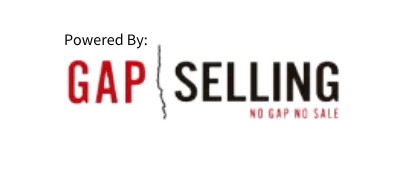Unveiling Sales Insights from "Pretty Women": Moving Beyond Budget-Centric Approaches
When did you first watch Pretty Woman? The movie debuted in 1990. By my math I was 12 or 13 when I first watched it. Good old VHS - right? (for anyone reading this that doesn't know what a VHS tape looks like - google it).
I digress.....
In the world of sales, first impressions matter. Do you remember the iconic scene from "Pretty Woman," where Julia Roberts walks into a high-end store in attire that doesn't match the store's aesthetic?
This scene made everyone feel a bit uneasy, and many of us sympathized for how Julia Roberts was treated. Maybe it brought you back to high school days where you felt judged, or to a sleepover where others made fun of what you were wearing or where you lived and the clothes you wore. Bottom line - the qualification was based on one thing - usually a snap judgement.
We often find ourselves unknowingly passing judgment based on surface appearances. But, just as in the movie, we might be missing out on incredible opportunities by making snap judgments about prospects solely based on their budget.
Let's dive into why it's crucial to teach our teams not to qualify prospects solely based on budget and how it can lead to missed potential.
Julia Robert's Syndrome: Beyond the Surface
Picture this: you log into a zoom call for a first discovery and right off the bat you get down to business and ask what the potential customer's budget is. They state they don't have one, or throw out a number that is well below the starting price for your product or service. Many salespeople mark this as an unqualified lead and walk away. Why spend the time diving into a long discovery process then a demo when the customer clearly can't afford it.
It's tempting to walk away from prospects when they do not present as a golden opportunity. However, just like in "Pretty Woman," appearances and what a customer tells you can be deceiving. The prospect's budget doesn't always reflect the size of their problem, the impacts, challenges or how big the gap is. When we qualify out prospects without digging deeper, we risk overlooking those who might have unique problems that we can uncover.
The Value of Problem-centered Qualification:
When we focus solely on budget, we miss the chance to uncover the real problems that our prospects are dealing with. Instead of assuming that a low-budget prospect won't benefit from an in depth discovery process, we should prioritize uncovering asking the right questions. Not only does this shed light on the buyer's problem and expose them to gaps they may have overlooked, but it also takes a consultative approach to the selling process (and I see from the gazillion emails I get - not many companies are coaching or training on this).
Empathy: The Key to Effective Sales:
Julia Roberts' character in "Pretty Woman" eventually found a salesperson who treated her with empathy and helped her discover her true potential as a customer. Similarly, as sales leaders, we need to cultivate empathy within our teams. By teaching our sales professionals to listen actively, ask probing questions, and understand the prospect's perspective, we can create more meaningful connections and uncover opportunities that would have otherwise remained hidden.
Breaking Free from Budget Bias:
"Pretty Woman" teaches us not to judge a book by its cover, we must remember that a prospect's budget is an arbitrary number put together during the budgeting process. When you focusing on problem-centered discovery and get our heads around how big of a gap customers are facing, we can then dive into the cost.
Teams that take the approach of the sales associates in "Pretty Woman" - disqualifying based on appearance (budget) are missing the mark and potentially losing out on business.
P.S. If your company does not know what problems you solve for - do not pass go - go immediately to this page and download a PIC (problem identification chart).






